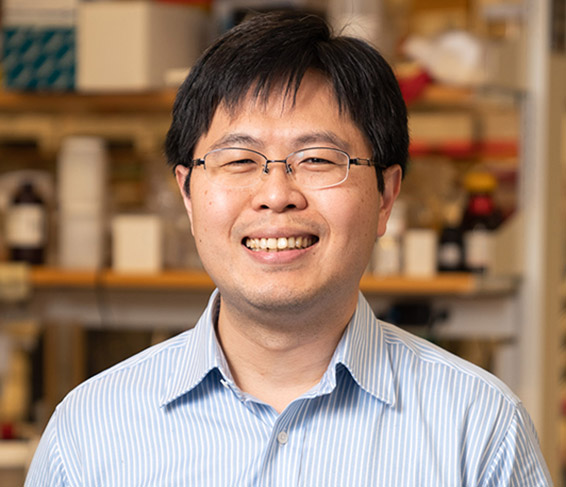
Ming-Ru Wu, MD, PhD
Biography
Ming-Ru Wu, MD, PhD
Dr. Wu received his MD from Tzu Chi University in Taiwan. He obtained his PhD in Microbiology and Immunology from Dartmouth College in 2015, where he developed several natural killer cell receptor-based chimeric antigen receptor (CAR)-T cells, bispecific T cell engagers (BiTEs), and tumor-targeting nanoparticles. He performed postdoctoral research at the Synthetic Biology Center at MIT, where he developed cancer-targeting gene circuits and high-throughput cell state-sensor engineering methods. He joined DFCI in 2019, where he is primarily focusing on harnessing the tools and design principles of synthetic biology to develop cell- and gene circuit-based cancer immunotherapy.
Researcher
Physician
Assistant Professor of Immunology, Harvard Medical School
Department of Cancer Immunology & Virology, Dana-Farber Cancer Institute
Department of Immunobiology, Harvard Medical School
Medical School
- Tzu Chi University
Recent Awards
- MIT Hacking Medicine Hackathon (Grand Hack), 1st place in cancer track
- Cancer Research Institute CLIP Award
- St. Baldrick’s Scholar
- Amazon AWS AI Research Award
Locations

Dana-Farber Cancer Institute
One Jimmy Fund Way Smith Building Room 770C Boston, MA 02115Dana-Farber Cancer Institute

Dana-Farber Cancer Institute
One Jimmy Fund Way Smith Building Room 770C Boston, MA 02115
42.3377, -71.1079
